

Work & Enterprise
Photo essay: How women in India’s informal settlements are shifting gender stereotypes
In Ward No. 59, an informal settlement in Patna, the capital city of the state of Bihar, change is underway.
The neighbourhood buzzes with children as they eagerly line up outside Neeta Devi’s brightly painted, tin-roofed shop to buy their favourite snacks. Though her shop opened just a few weeks ago, it represents years of aspiration finally taking form.
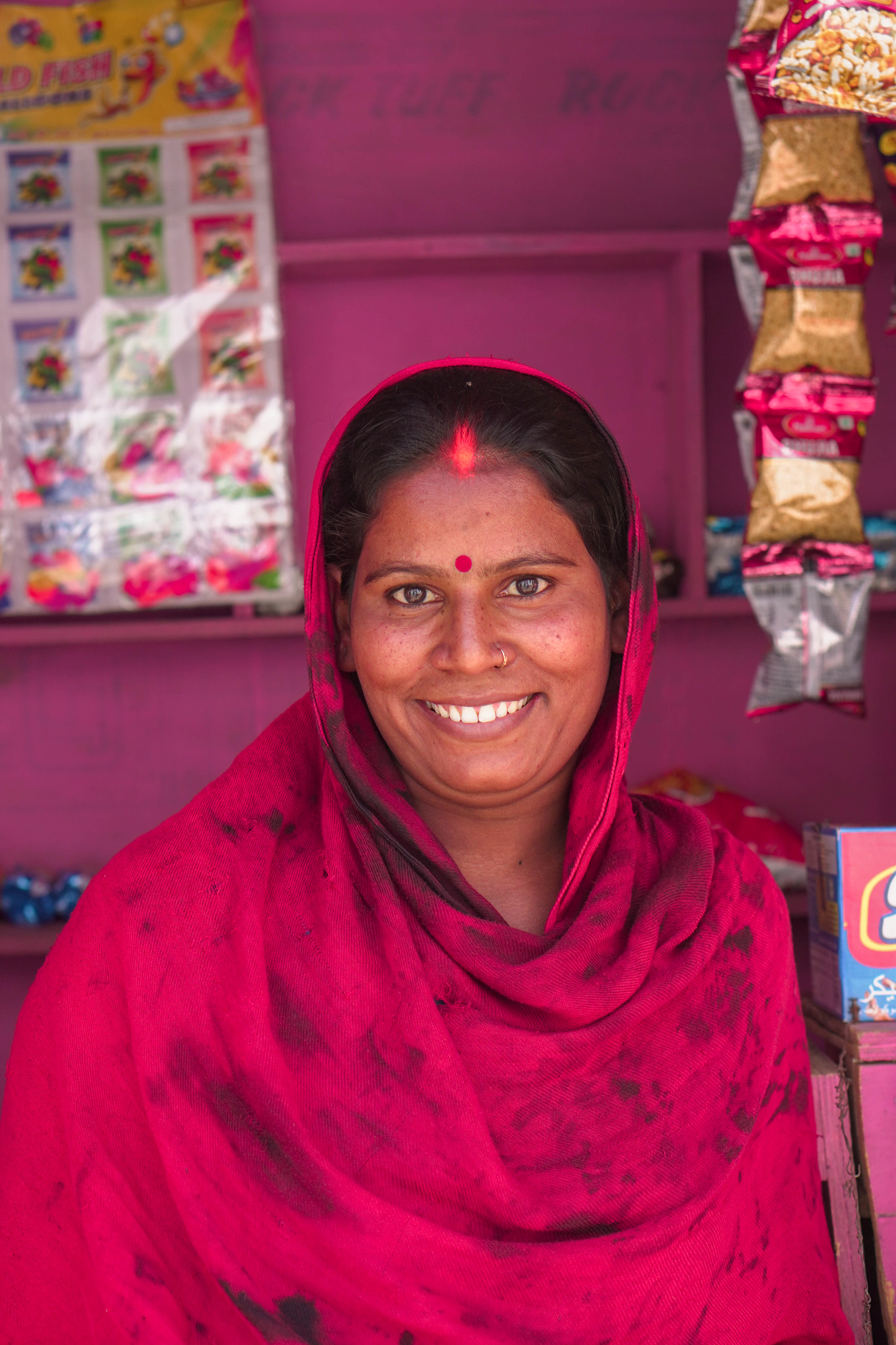
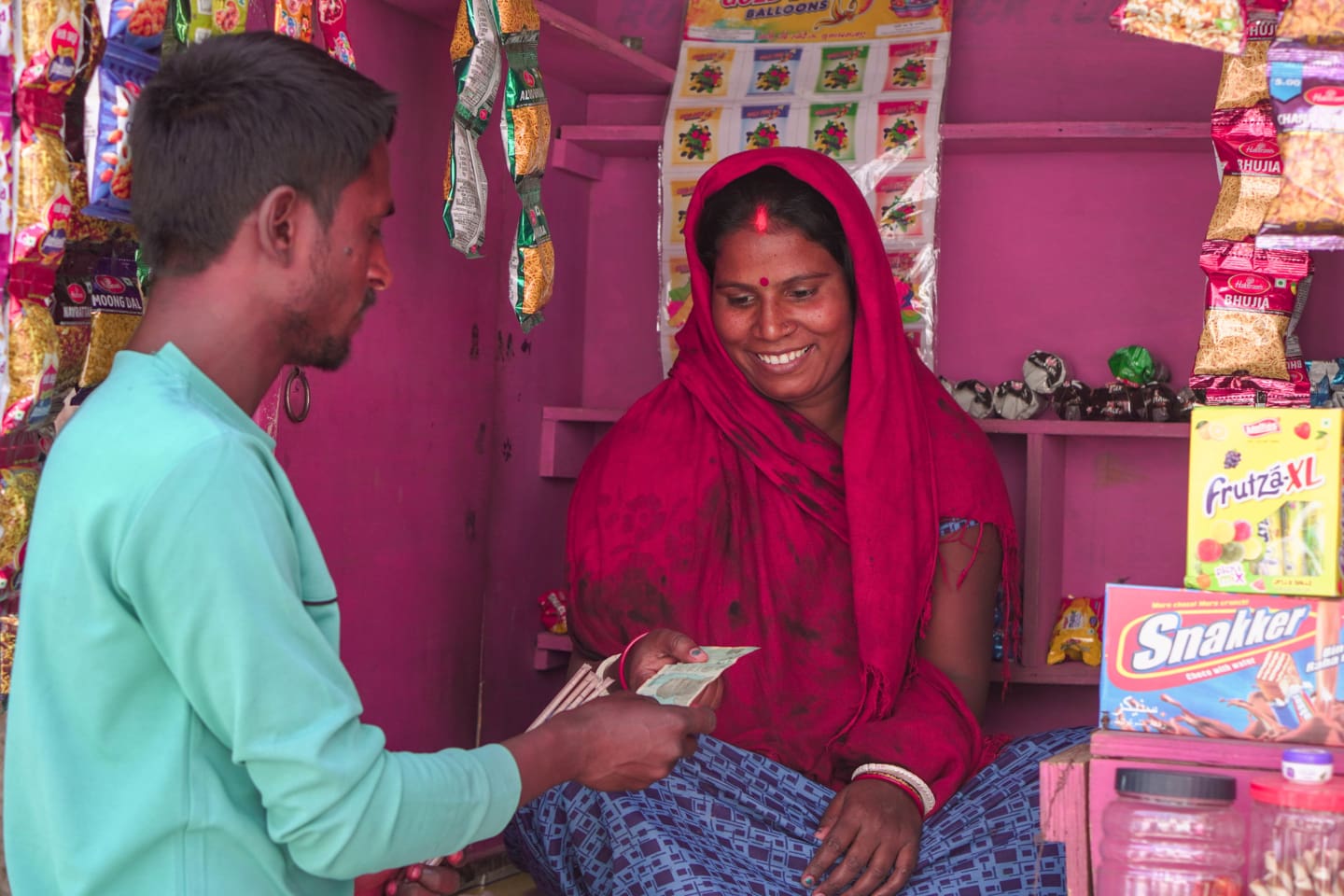

In the vibrant city of Patna, on the southern bank of the River Ganga, thousands of families live in informal settlements. Most have migrated from villages and smaller towns, hoping to find stable work in the city.
These densely populated areas lack basic amenities and infrastructure, and most of the housing available does not suitably accommodate the volume of residents living there. The houses are small and are built wherever families can find available space, along roadsides, under bridges, or beside railway tracks. On average, a family of five lives in a house measuring just 80 square feet.


Women in India’s informal settlements face distinct layers of marginalisation. Beyond the challenges of poverty and overcrowding, they often encounter gender and caste-based discrimination, limited access to education, formal work and healthcare, and the burden of unpaid household and caregiving responsibilities. Yet, women’s voices are rarely heard in family decision-making, or in the wider community.
Despite the challenges they face, women continue to show resilience and leadership. With the right support, women can unlock their potential, as seen in successful women-led initiatives across the state.
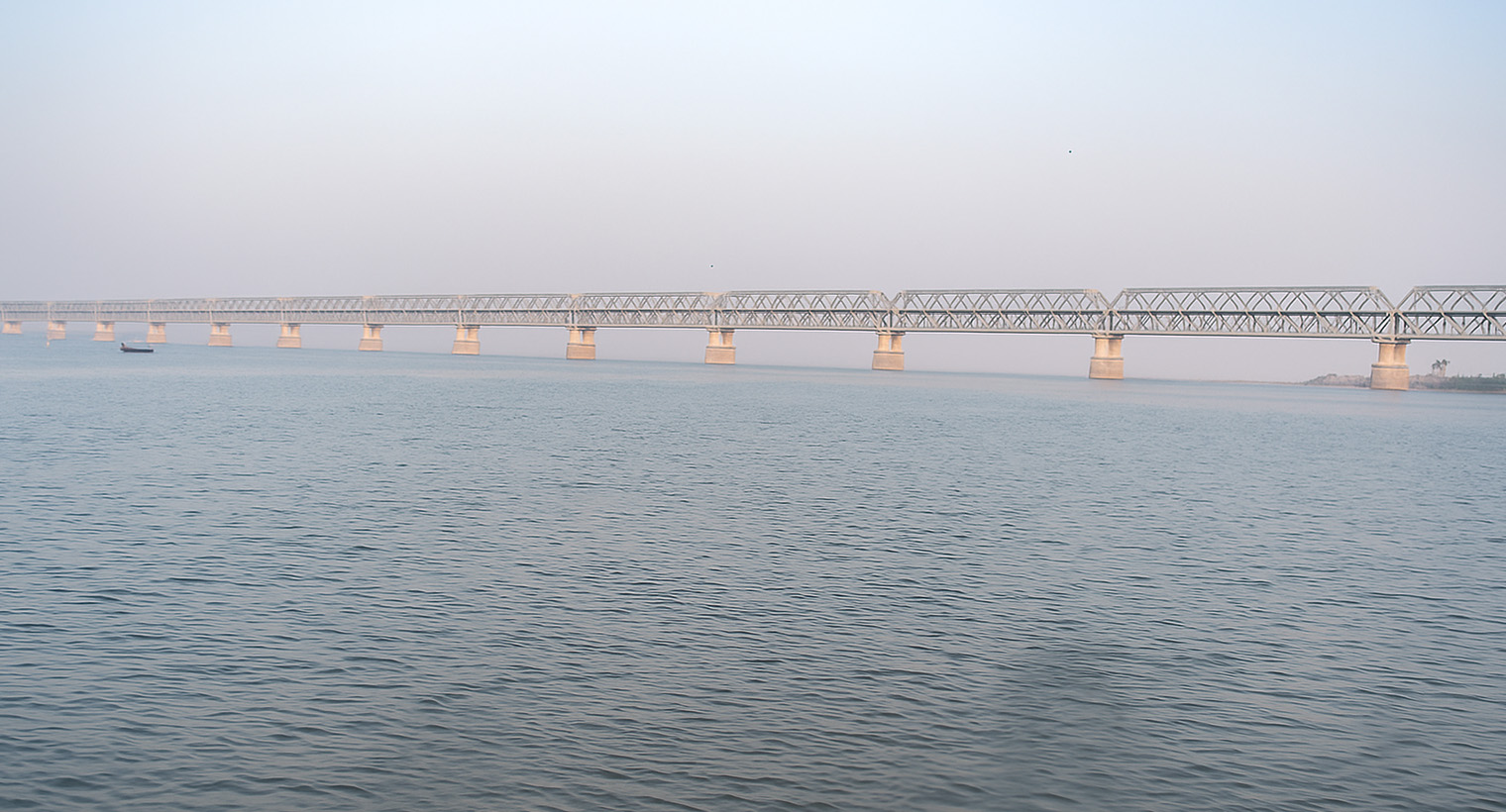
In Patna and nearby Gaya Jee, the Aga Khan Foundation (AKF), in partnership with JEEViKA and BRAC International, is piloting a women-led approach to support economically marginalised households, focusing on social protection, livelihoods, financial inclusion, and empowerment.
Since 2006, JEEViKA, Bihar’s state rural livelihoods mission, has supported rural women through self-help groups and community livelihoods. It is now adapting this model for urban communities, with AKF providing technical support. AKF helps identify potential livelihood opportunities through a community-based process, which is vetted by JEEViKA’s Cluster Level Women’s Federations. Meanwhile, JEEViKA provides households with financial support to launch these initiatives.
So far, a variety of enterprises have been established – from convenience shops to food stalls and vegetable carts selling locally sourced products – by women in several communities, including the women of Ward No. 59 in Patna.
In these communities, seeing women run their own businesses has a ripple effect. Not only can it improve their own lives, but it can strengthen families, support children’s education, and shift traditional perspectives on gender roles – taking a step towards greater gender equality.
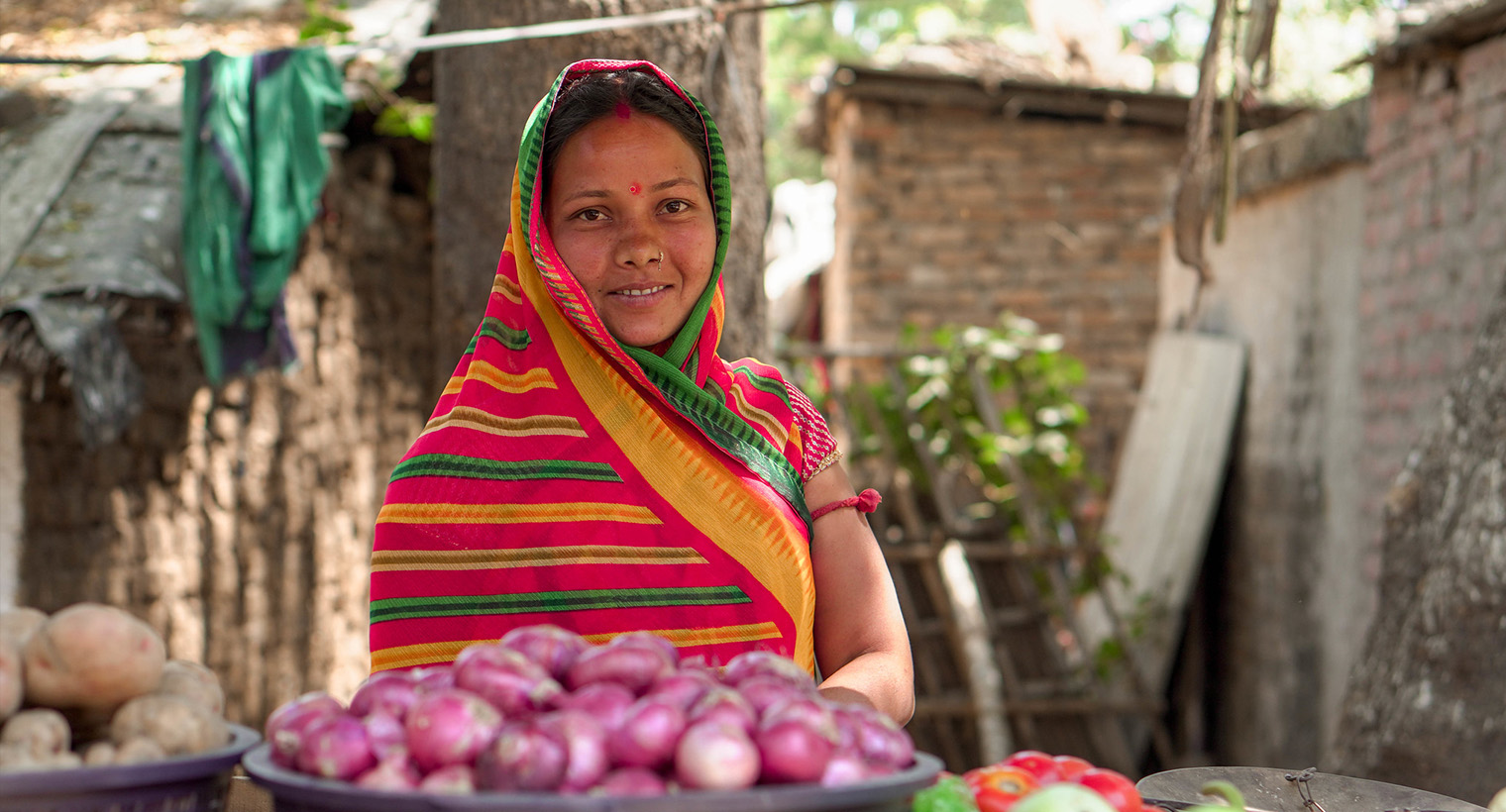
At just 21, Basanti Devi is running a vegetable cart independently. Her days are long but her pride in contributing to her household is visible in every smile exchanged with her customers.
Over the next three years, the programme will reach 5,000 households across several settlements in Patna and Gaya Jee. Master Resource Persons (MRPs) – local men and women selected from the community – have been trained to work closely with selected households and lead weekly sessions on savings, business development, customer behaviour, bookkeeping, and literacy.
For many women participating in these sessions, the first milestone is learning to sign their own name – an act of autonomy that unlocks access to bank accounts, record keeping, and enterprise management.
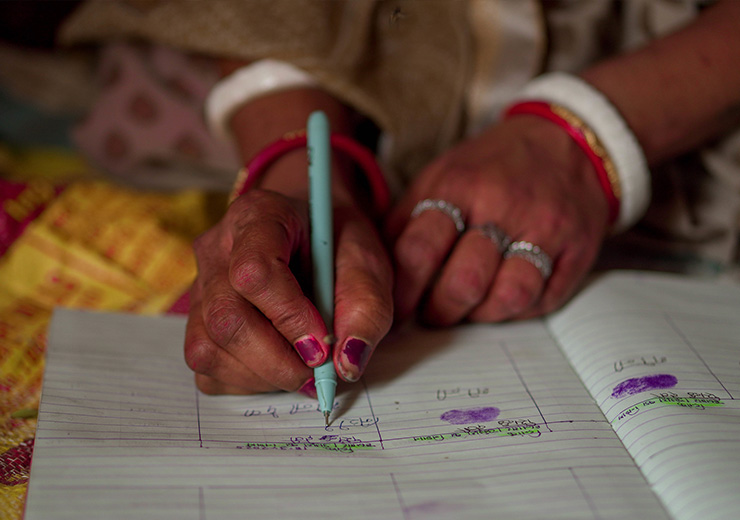
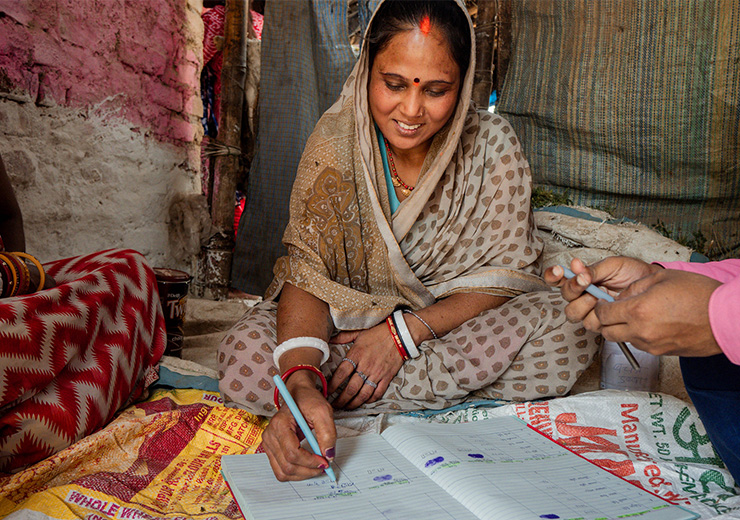

A smiling Nori shares what she has achieved so far with her newfound income.
During a recent meeting with the MRPs in Ward No. 59, Nori practiced signing her name, smiling with pride after seeing the progress she had made.
After just a few weeks of selling vegetables from her cart, Nori said that she was able to celebrate the festival of Holi like never before. This year she could use her earnings to cook elaborate meals for her family and buy colourful new outfits for herself and her children. Nori laughed as she listed the numerous dishes she prepared – her joy as vibrant as the festival of colours itself.

When the programme launched in August 2024, scepticism ran high amongst the communities, so JEEViKA, AKF and the MRPs spent weeks listening, returning, and building trust. Today, many who initially declined to participate are now asking to join the programme after seeing the transformation in their neighbours’ lives.

Khemsari Devi serves boiled eggs and omelettes at her cart.
Khemsari Devi was initially hesitant when the team first approached her. But with her husband’s encouragement, she now runs her own egg cart next to his shop.
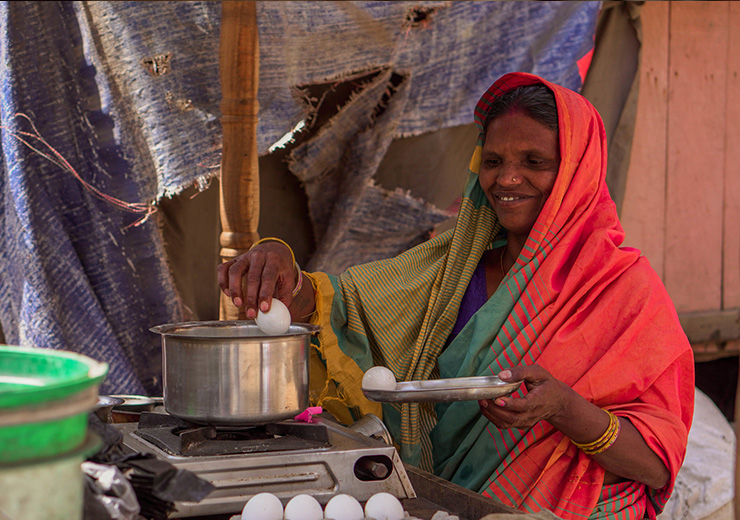

From masala omelettes to fried and boiled eggs, she sells a variety of dishes. The inviting aroma from her cart every morning has made it a popular corner in the lane, drawing a steady stream of customers.
Khemsari Devi’s small business has earned her visibility and respect within the neighbourhood. For all the women business owners, this respect often extends beyond the community, also reshaping dynamics at home.
Earning their own income gives these women a stronger voice in household decision-making, from daily expenses to education for their children, and a greater sense of agency over their families’ future.

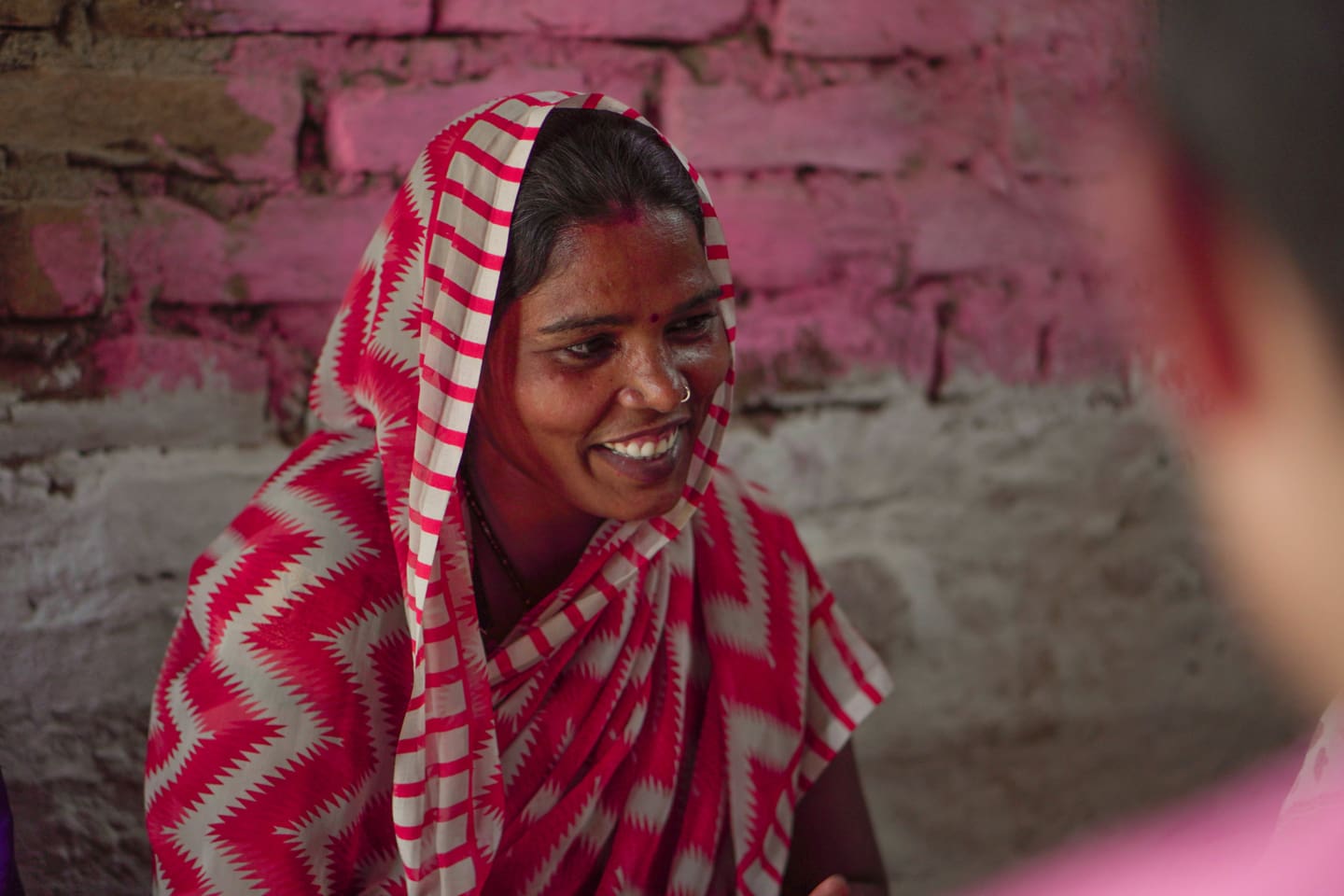
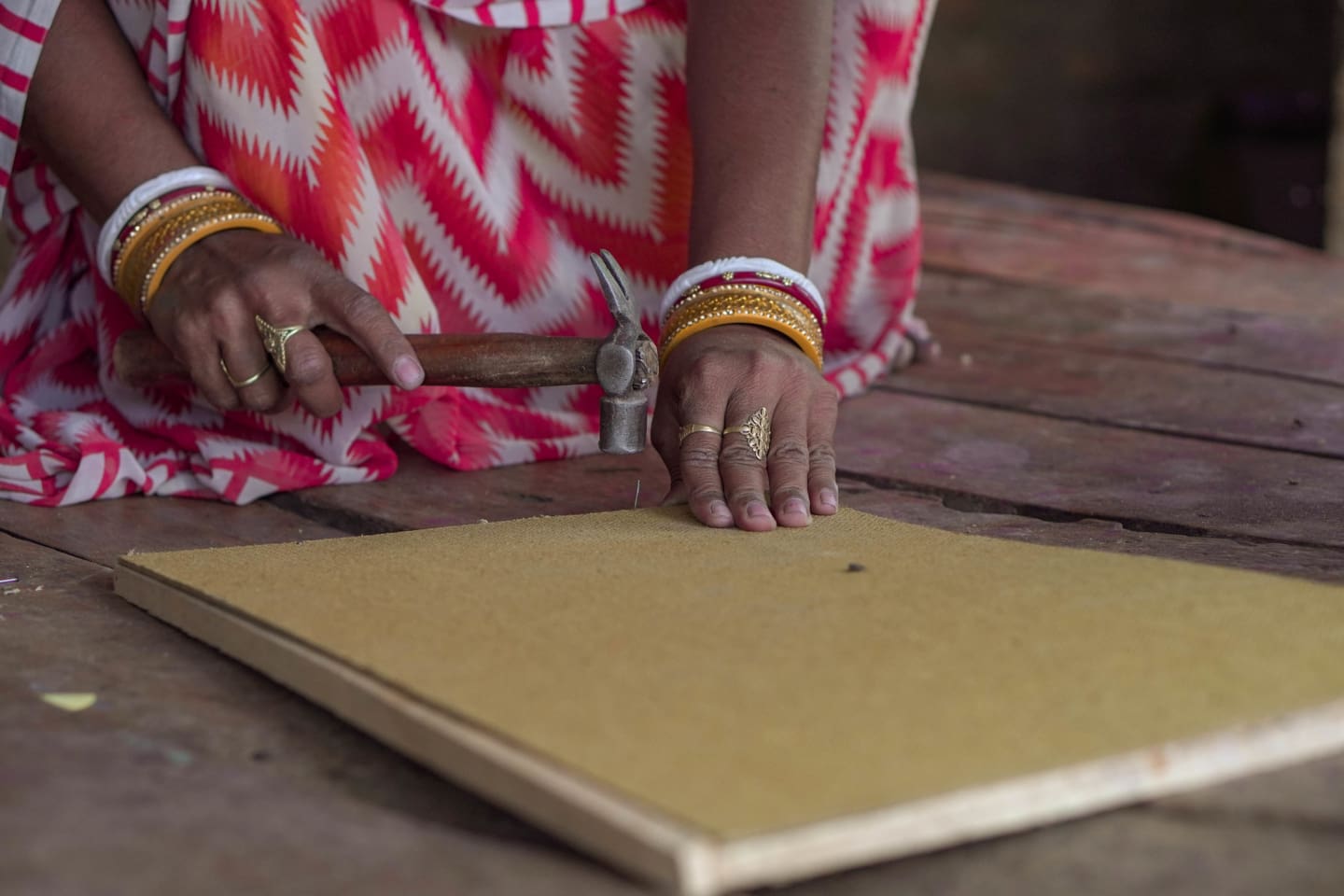
As the programme develops, the women of Ward No. 59 are moving beyond daily survival and creating livelihoods that last. Women are discovering that running streetside businesses also means stepping into visibility, with their skills, confidence, and voices becoming impossible to ignore.
Photos by Waris Ansari
Words by Seemab Alam and Kerensa Keevill
The programme, called Satat Jeevikoparjan Yojana – Urban (SJY-Urban), is led by the Bihar Rural Livelihoods Promotion Society (BRLPS), also known as JEEViKA.
SJY-Urban is also supported by a consortium of partners:
- Aga Khan Foundation (AKF): AKF is responsible for delivering technical assistance towards strengthening the urban livelihood ecosystem and is leading the development of coaching and mentoring strategies tailored to help households transition to sustainable livelihoods.
- BRAC International: BRAC provides both technical support and funds for the establishment of a Project Management Unit, that provides technical assistance to BRLPS across various thematic areas under the Bihar Urban Ultra-Poor Graduation Programme.
- Project Concern International (PCI): PCI leads the PMU and ensures the implementation and coordination of programme activities with BRLPS for smooth and effective execution.
- Mobile Creches: Mobile Creches is tasked with setting up childcare centres (crèches) for the children of targeted ultra-poor households, while also working on linking families to childcare-related government entitlements.
- Mahila Housing Trust (MHT): MHT is piloting climate resilience solutions that aim to strengthen the sustainability of livelihood activities for ultra-poor urban households.

Shweta Banerjee, Country Lead, BRAC International, and Tinni Sawhney, CEO of AKF India, at the MoU signing to expand livelihood opportunities in Patna and Gaya Jee’s urban settlements.

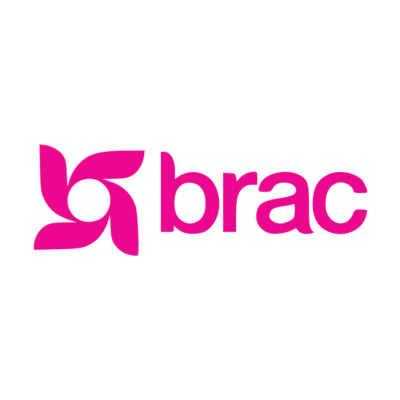
Related News & Stories

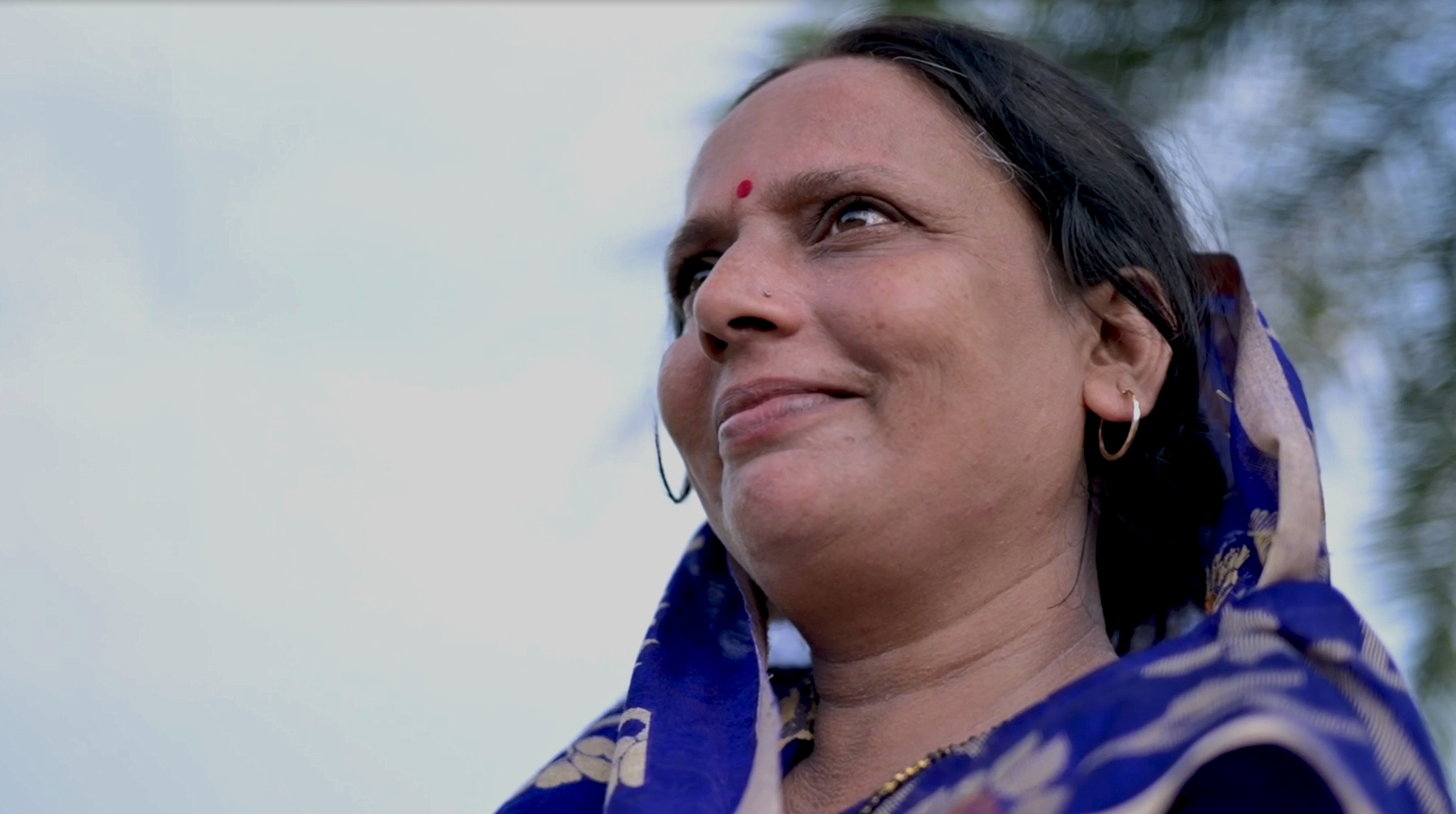
Elected Women Representatives: Sujata’s story
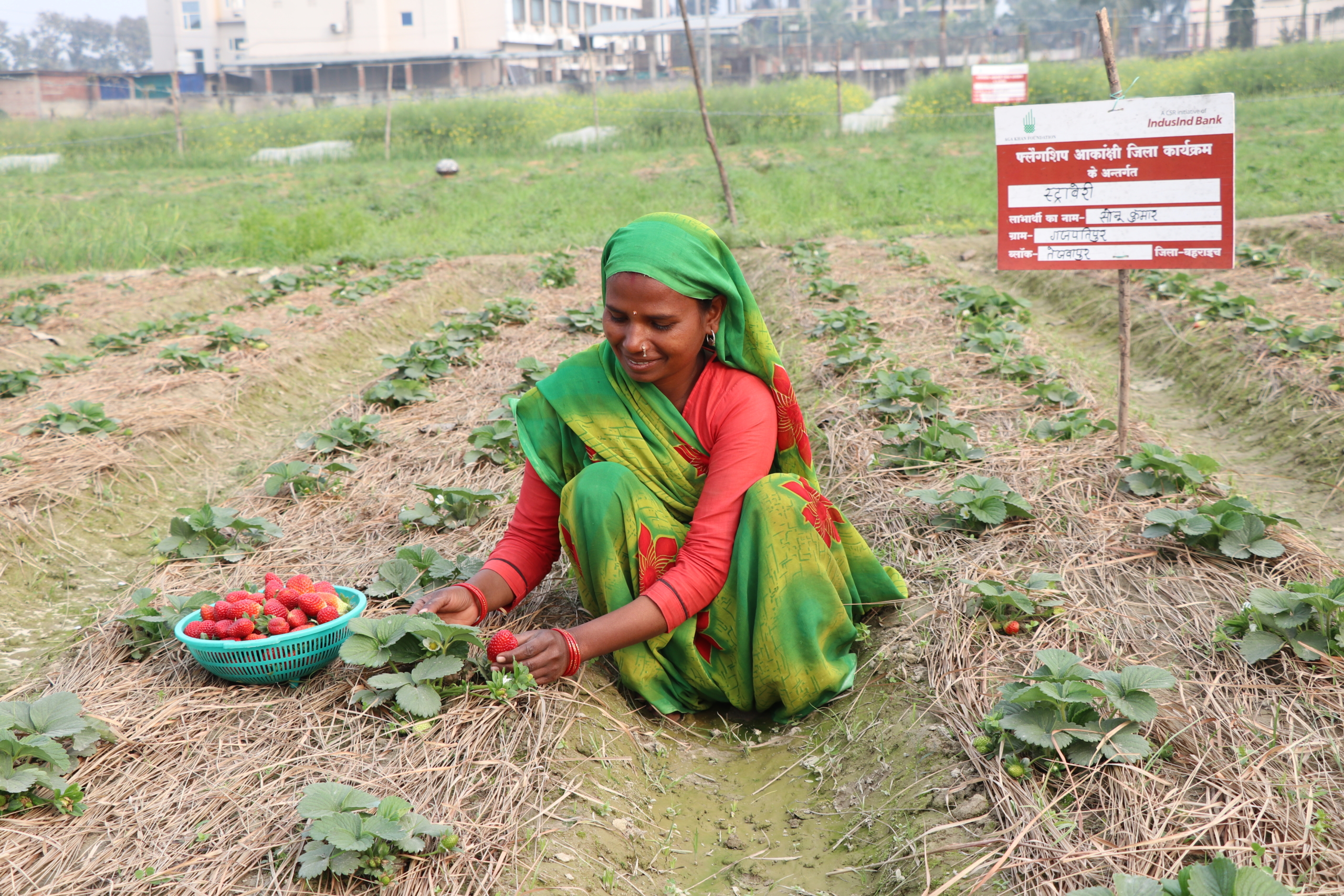
Organic strawberry farming: a new opportunity for women in rural India

The Indian Ocean: How can coastal communities adapt to a rapidly changing environment?
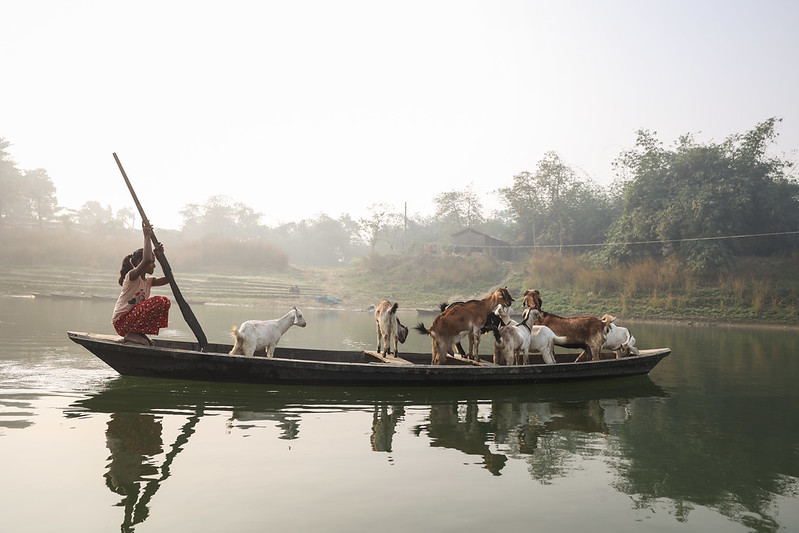
Meet the Pashu Sakhis of Bihar

Green guardians: Pioneering climate resilient agriculture in Uttar Pradesh
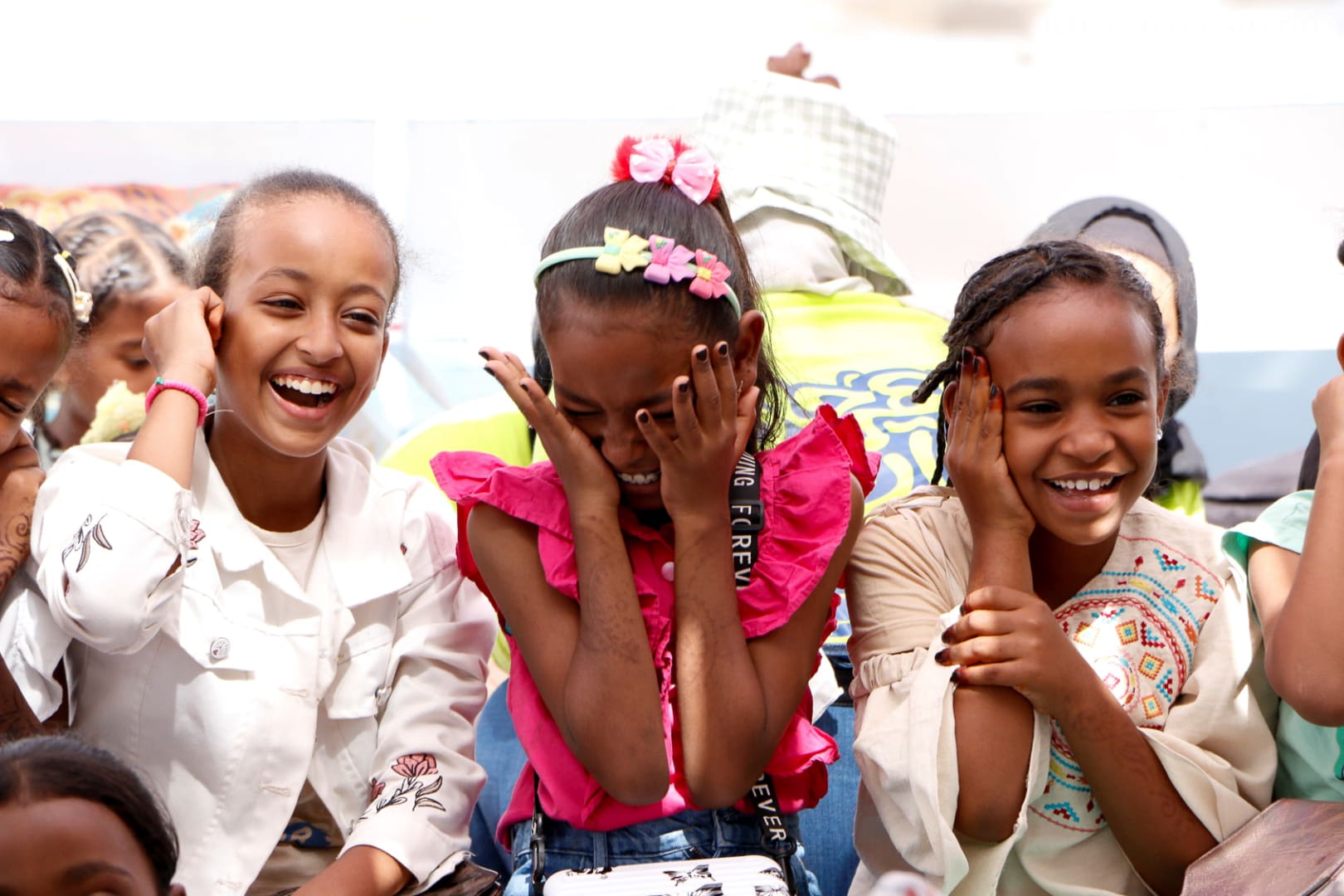
Support our work Your donations are helping us build a future where we all thrive together.